In recent years, Bali has begun to transform from a backpacker place to a very popular destination. More and more tourists and holidaymakers come to the island. And where are many tourists, there is also less fear of the unknown and people might get more confident? You can easily find a lot of tips and advice about Bali, but I am adding my own experience and a more subjective point of view.
When to go to Bali?
Anytime. There is a dry season in Bali from April to October and the remaining months are rainy. I went there during the dry season, which also means more tourists. Bali is also a very popular holiday destination for Australians (something like Croatia for Slovaks) and many of them have opened their own business or even have lived there for a long time. So in the dry season, you might encounter more groups of two cheerful Australians and in the rainy season, Bali might appear as a calmer place.
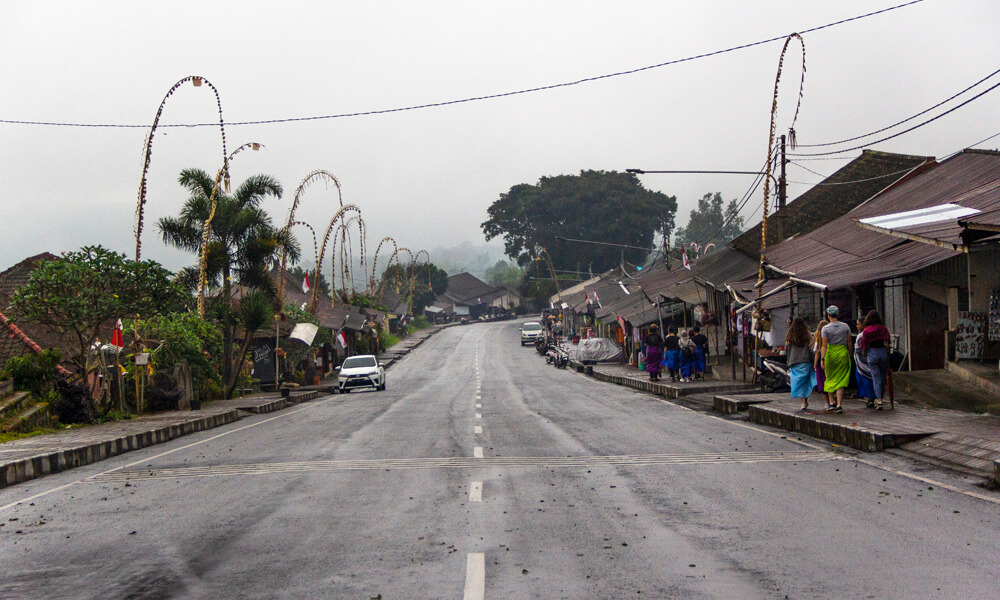
Vaccinations and diseases
Officially, no vaccinations are required when staying in Bali. However, there are some recommendations. Consider vaccination against hepatitis A and B, typhoid fever, or rabies. Vaccination should be considered in advance, some of them require two doses and a body also needs some time to build up antibodies.
In Indonesia, in the case of long-term stay it is recommended to be vaccinated against:
- hepatitis A and B
- typhoid
- Japanese encephalitis
- tetanus – vaccination should not be older than 10 years
There is still a risk of dengue fever, but this risk decreases with more tourist areas. In any case, it is good to buy repellent right after you arrive in Bali because repellents from other countries might not be 100% effective against mosquitoes in these areas. The risk is not very high, but just keep in mind that there is such a possibility.
Also, consider a vaccine against rabies although, it is not often that an animal bites someone in these tourist areas. However, if an infected animal scratches you the infection comes into contact with an open wound, and there is a pretty high risk. Then it is necessary to seek medical help immediately and perform blood tests because the disease spreads quite quickly and is unfortunately fatal. But everyone who has a little common sense knows a closer contact with an aggressive animal should be avoided. Although in tourist parks, monkeys are used to humans in such a way that they become more aggressive and therefore the risk may be greater.
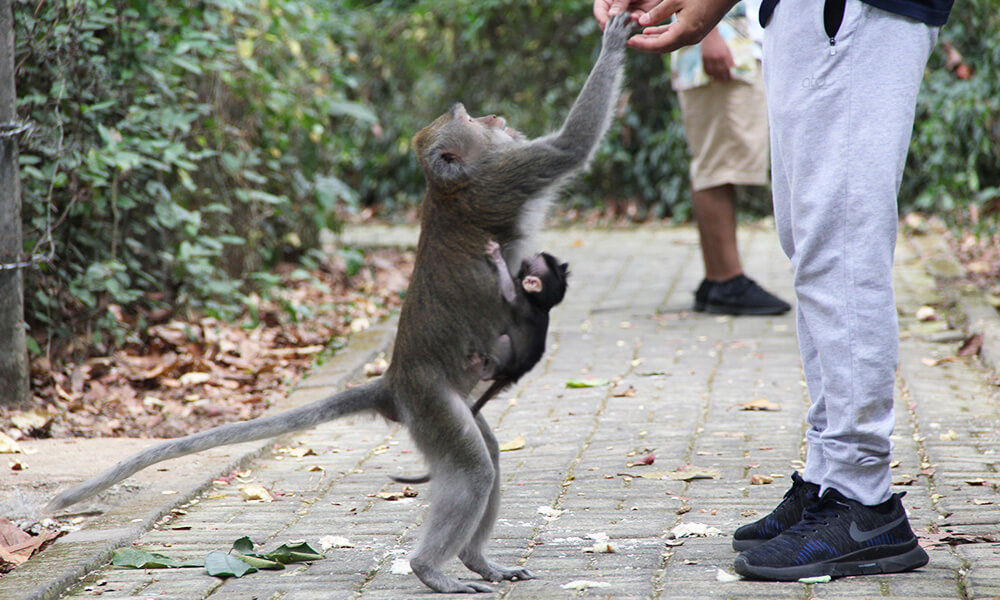
The most common inconvenience that can affect you in developing countries, and therefore also in Bali, is food poisoning, or the so-called Bali belly. Unfortunately, I have a personal experience with this when I even came to greet the doctor at the local clinic. Since I traveled alone, I had to ride a scooter to the clinic, and when you feel sick, it’s not a really pleasant experience. In addition, I did not have enough cash in local currency and they did not want to accept a card or dollars, so I had to go to the nearest exchange office. Either way, I had to wait for the doctor because she had gone to treat a patient outside. I was surprised by her professionalism, she was really nice. A nurse measured my temperature, and pressure and the doctor sent me home with painkillers, pills for the stomach, and vitamins.

Visa and passport
The visa process has been significantly facilitated in the country in recent years. Tourist visas are available for 30 days directly at the airport free of charge. As in most countries, the passport must be valid for another 6 months from the date of departure.
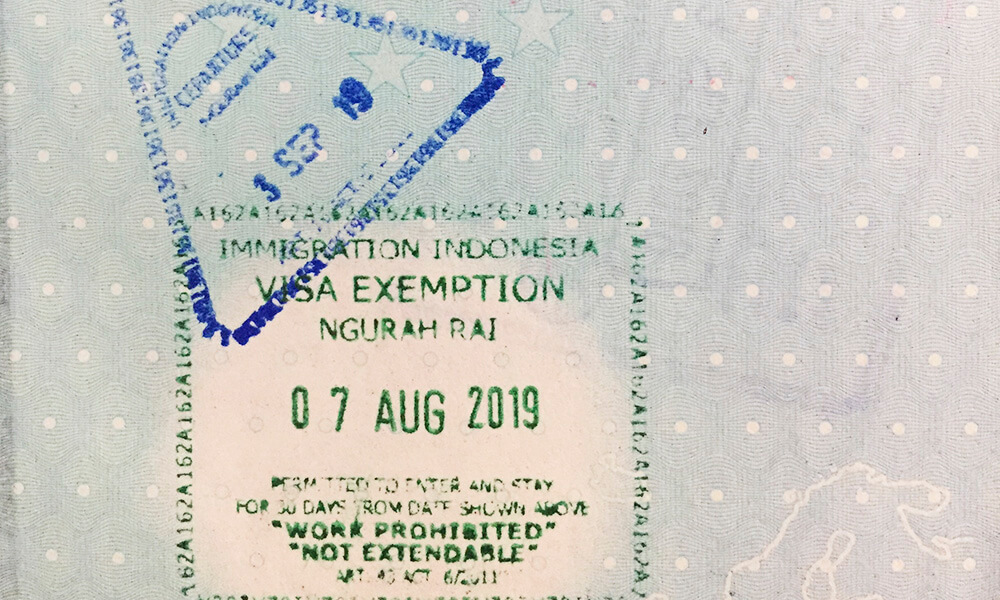
Money
Usually, you pay in cash everywhere, you can pay by card in more expensive restaurants and bars, but they will charge you 3% of the amount of the payment, and they will always let you know in advance.
ATMs are on every corner, but it does matter which one you choose. It is always better to choose from ATMs marked by well-known banks, for example, by the BNI bank, preferably where there are cameras, a lot of people, and the one that is right next to the bank, ie guarded.
Before the trip, I ordered a Revolut card, which is probably the best option for travelers. A multi-currency account and a mobile application where you can quickly freeze your account if you lose your card or have it stolen.
In case you want to use a card from your country, always inform your bank that you will withdraw money in Indonesia so that your account is not blocked. I didn’t do it, but fortunately, my bank called me first and checked all the info about my withdrawals in the country.
In shops, restaurants, and bars, you can also pay in dollars, but you need to follow the exchange rate, in some places they can calculate less, e.g. even in exchange offices in Canggu they do not have the same exchange rate in every place, so better double check that.

Maps
The best is to download offline maps. If you enter a route via Google maps, it might send you through almost impassable roads, even though you are going to a tourist-famous place. Always follow the main road, the side streets here do look way less accessible. Here you will often come across a road that is maybe 50 cm wide, without asphalt somewhere in the middle of the rice fields, and no one around. If you are lucky you won’t lose the experience of enjoying the view of a quiet street and paths surrounded by rice fields, if not, then you can end up somewhere trying to pull the scooter out of the mud.
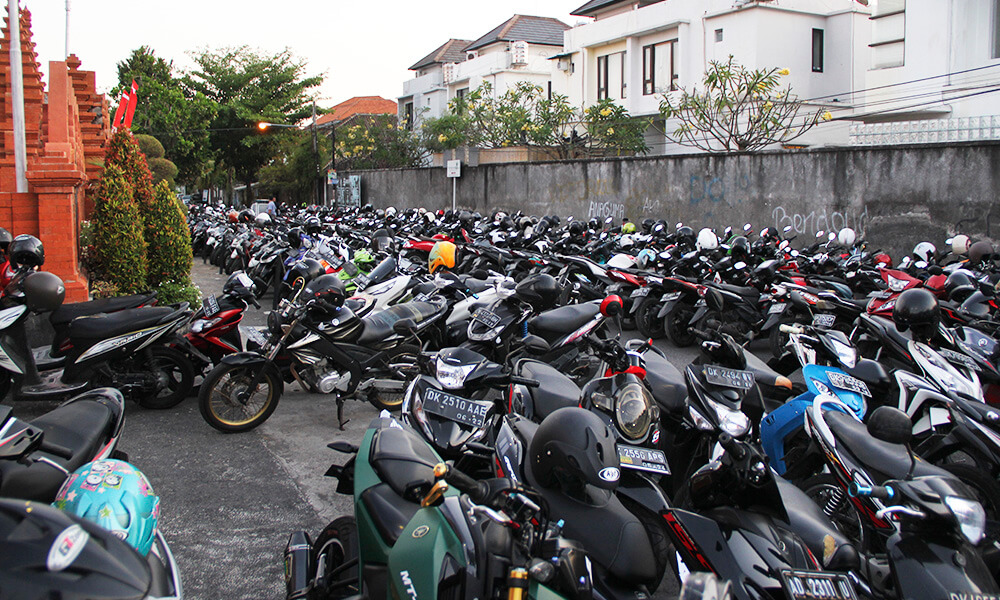
Tips and other services
In Bali, tips are not mandatory but are expected to be around 10% or 5,000 IDR. From my own experience, in places where I did not give a tip, they barely looked at me, and if I was generous, they smiled at me. Once they even wanted to take a picture with me. So it’s all about what impression you want to make and how much extra you can afford to spend.
In case you need to go to a bank, the opening hours are always from 8 am, from Monday to Thursday and they close at 2 pm, on Friday they close around lunch, and on Saturday at 11 am. Post offices are usually open from 8 am to 2 pm throughout the working week.


Shopping
If someone just stops by you and starts asking you where you are from, they will most likely pull out anything they want to sell to you in a few seconds. These people act very friendly, but you don’t even notice, and you’re already looking at “their” paintings, for example. A man stopped by once and started showing me a notebook full of notes of the people from different countries who bought his paintings and were very happy about it. Of course, he had these notes written in almost every language. Then he started showing me the paintings and explaining what was on them. He even told me that the painting was made of lava stone since we were close to a volcano. Unfortunately, since I already started talking to him there was no way out. When I had two paintings I like in my hands, he started negotiating the price to force me to buy both, even though I repeatedly refused. Eventually, he started to get nervous and raise his voice, so to not make him mad I had to buy at least one from him.
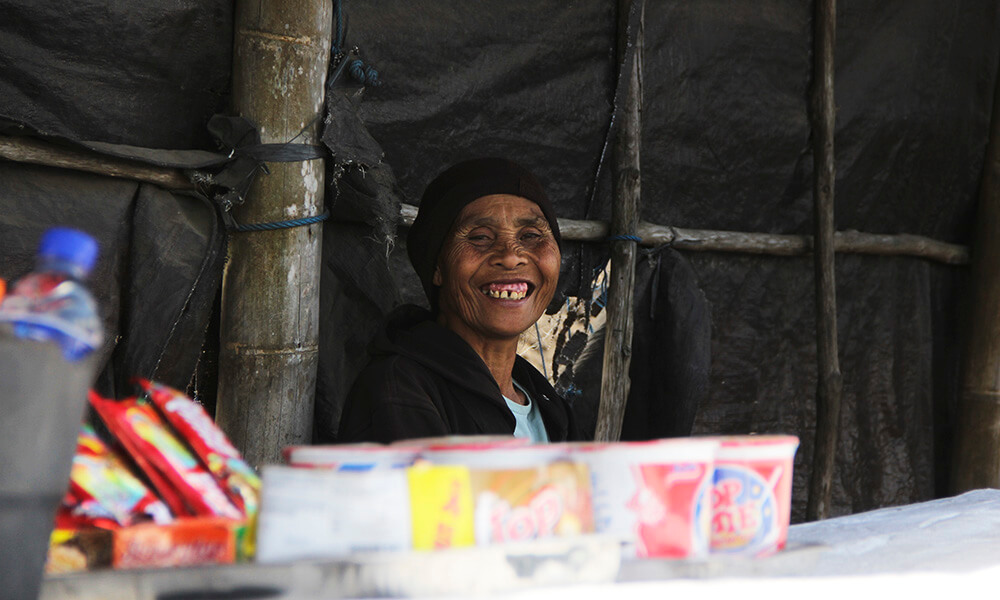
Another experience I have was with a painter who just immersed himself at the hotel in the city. He said that he was opening a gallery somewhere in Europe, had a studio in the capital and a Frenchman had just bought a painting from him. After he showed us all the paintings, we started joking that if he had one particular temple painted, we would buy that from him. Suddenly he began to claim that what he had painted is exactly that temple, it was just in another place, and in fact, all the temples in Bali are called the same, just this one is in the wider area and the whole thing belongs to this one. Are you confused? Well, we were too and this whole situation was funny, but on the other hand, these people are sometimes so desperate that they are willing to lie, mislead and get angry just to sell something. Therefore, always keep in mind that if you just want to take a look at something and you are not interested in buying it, don’t stop and don’t even talk to such people.
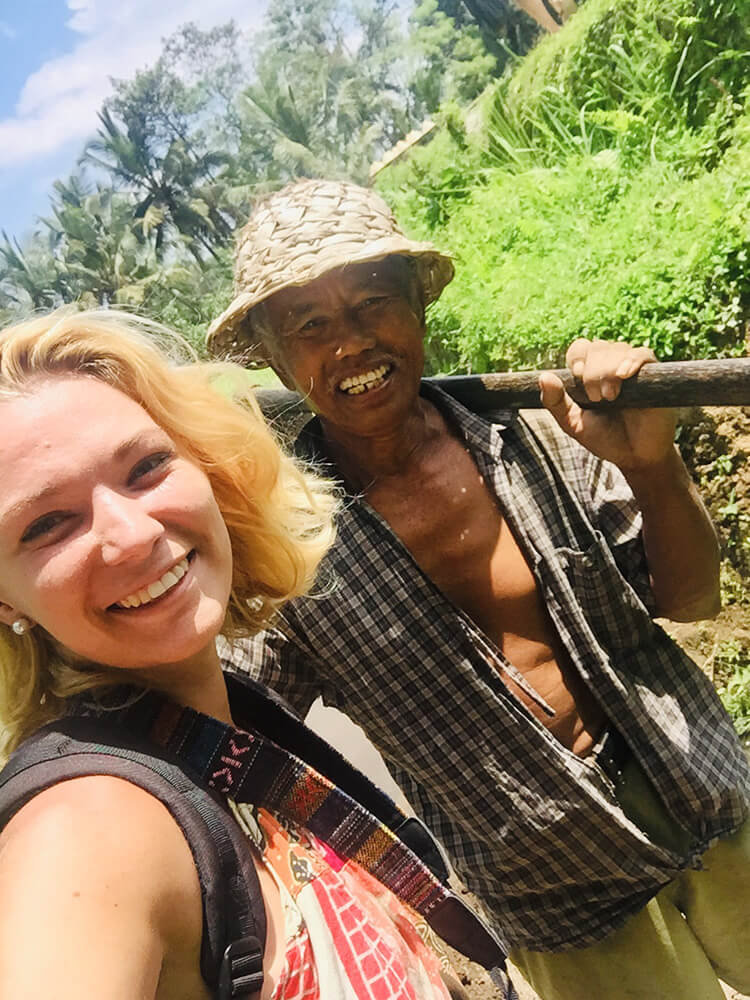

Don’t buy water from the store
I don’t mean that water is bad, but Bali is increasingly trying to reduce the consumption of plastics, especially disposable ones. There is an application Refill My Bottle that shows you a map with marked places where you can add water to the bottle for free or for a small fee.
So that’s it. Traveling around Bali is no science, you don’t go to the deserted jungle, but it’s always good to keep some things in mind. I hope you’ve found this article helpful and getting ready for your trip.
